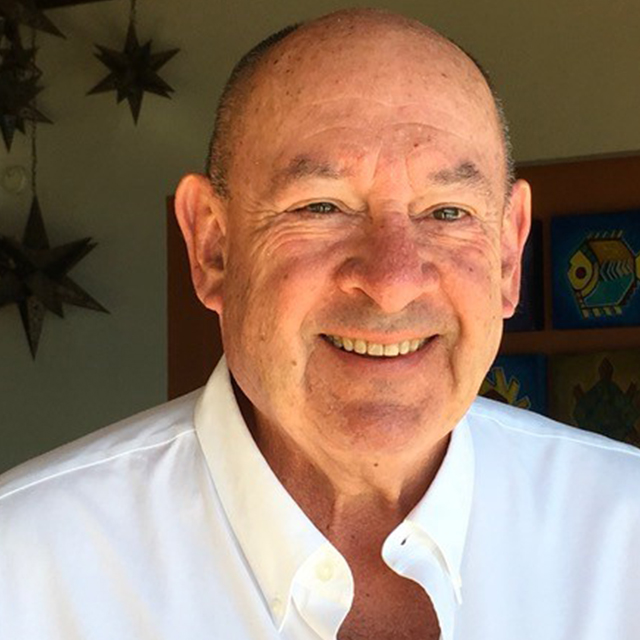After Successful Shoulder Surgery, Grateful Patient Gives Big
Half of estate donated to support Edward McFarland’s research work.

George Tarr designated half of his estate to support the work of Johns Hopkins orthopaedic surgeon Edward McFarland.
George Tarr had chronic pain in his right shoulder from years of playing tennis. Seeking treatment, he landed under the care of Johns Hopkins orthopaedic surgeon Edward McFarland, who found that Tarr had a torn rotator cuff. McFarland performed a surgical repair in 2006.
The surgery — which Tarr, now age 79, describes as “uneventful” — inspired him to make a major gift to the Johns Hopkins Department of Orthopaedic Surgery to help fund McFarland’s research. Half of Tarr’s approximately $3 million estate is designated to support the work of McFarland, who is the director of the Division of Shoulder Surgery. The other half will support the research of Andrew Lane, director of the Johns Hopkins Sinus Center, which is in the Department of Otolaryngology–Head and Neck Surgery. Lane was the surgeon for Tarr’s late wife, Diane.
Tarr says that throughout his treatment, he was impressed and comforted by McFarland, who he calls an “all-around nice guy” with outstanding bedside manner.
“He puts you right at ease,” Tarr says. “Even going into the operating room when I had the surgery done, he personally came out and got me in the waiting room, put his arm around me and asked how I was doing. It was a relaxed, efficient atmosphere, and I was really impressed with that, and I just thought if there was a guy to help out with research, it would be him.”
After surgery, a few follow-up visits and about six months of physical therapy, Tarr says, his shoulder was back to 100%.
He was approached during recovery about supporting the department. It was an appealing proposition since the Frederick, Maryland, resident spent his career in research. Tarr has a Ph.D. in virology and he worked in vaccine development research, retiring from Fort Detrick in Maryland in 2011.
It was an easy choice to support McFarland, Tarr says.
“He always had residents with him and I was impressed with the way he interacted with them — they seemed happy to be working for him,” Tarr says. “He has a really nice operation at Hopkins, does a lot of educational initiatives and publishes a lot of research.”
McFarland, who has been at Johns Hopkins since 1992 and helped start its sports medicine division, treats patients with shoulder fractures, instability or dislocations, arthritis, rotator cuff tears and acromioclavicular (AC) joint problems. His research interests include evaluation, treatment and results of treatment, and how to improve them, and he has authored or co-authored more than 200 peer-reviewed articles, 20 chapters and one book.
He says Tarr’s gift will help fulfill the Johns Hopkins tripartite mission of clinical care, education and discovery.
“This gift by Mr. Tarr is an exceptional donation that will allow us to pursue new ground in our clinical research by supporting our programs, which evaluate how we can improve care for anyone who has shoulder problems of any kind,” McFarland says. “This donation allows us to finance the individuals who do the research, while also continuing with our important mission of delivering the world class care to our patients.”
To make a tax-deductible gift or to learn about the benefits of an estate intention or a charitable gift annuity that provides disbursements to you, please email Donna Clare at dclare2@jhmi.edu or call 410-955-6936.What will your legacy be?
An estate gift in 1873 from our founding benefactor, Johns Hopkins, created the American academic medicine model. The Johns Hopkins Legacy Society honors those who make their own legacy gifts to help secure the financial future of Johns Hopkins Medicine. To become a Legacy Society member, you may include Johns Hopkins in your estate plan, designate Johns Hopkins as a beneficiary of a retirement plan or life insurance policy, or give in a way that also provides income to you.
To learn more about these creative ways to donate, click the button below.
Related Content
-
After Great Treatment, He Sponsored a Nurse
The former investment management executive says his clinical experience was “tiptop,” and the nurse he had was “absolutely fabulous.”

-
Grateful Patient Bolsters Orthopaedic Research
Johns Hopkins shoulder surgeon Uma Srikumaran expands scope of research and team members.

